Remember when ranking on Google was all about keywords and backlinks? Those days are shifting fast. The digital world is now talking about SEO vs GEO. It’s a move from traditional search optimisation to generative engine optimisation.
Simply put, SEO helps your content show up on search engines, while GEO helps it surface in AI-driven environments like Google SGE, ChatGPT, and Perplexity.
As AI takes centre stage, businesses must adapt to a world where search results are conversational, localised, and predictive. Let’s discuss how AI search optimisation is shaping the next era of digital visibility.
SEO vs GEO — What’s Really Changing?
Traditional SEO relies on keywords, backlinks, and technical signals. GEO (generative engine optimisation), on the other hand, focuses on how AI interprets meaning, context, and intent. Search engines now act like smart assistants and blend your location, preferences, and behaviour to deliver personalised answers.
Why GEO Matters for Businesses
AI doesn’t just read content, it understands it. That means when someone searches “AI SEO Marketing in Wimbledon” or “best café near me,” the algorithm filters for relevance, trust, and local context. Brands that optimise for GEO are the ones appearing in these new AI-generated results.
What is the Role of AI Search Optimisation in Modern Visibility?
AI search optimisation is the art of writing content that both humans and AI can interpret clearly. It’s about structure, semantics, and clarity. AI looks for content with strong topic hierarchy, schema markup, and conversational tone. These are all key practices in AI SEO marketing.
How Has Search Evolved from Keywords to Prompts?
People no longer search with single words; they ask questions. “How do I boost my AI search visibility?” or “What’s the future of SEO with AI?” These prompts shape how AI ranks and cites your content, making natural, question-led writing more powerful than ever.
What Does the Future of Search Look Like with AI?
The future of SEO with AI lies in combining human creativity with data intelligence. Search is becoming intuitive. It knows where you are, what you need, and even what you might search next. For brands, that means embracing AI-driven personalisation and structured storytelling that fits into this new conversational ecosystem.
How AI SEO Services in London Help Businesses Stay Visible?
Agencies like Haarty Hanks help brands stay ahead by blending SEO and GEO like using structured data, AI-optimised copy, and prompt-based strategies. With AI SEO Services in London, your business can appear in both traditional SERPs and AI-generated overviews, maximising reach and credibility.
Adapt to the New Search Era with Haarty Hanks
Searching isn’t what it used to be. The line between SEO vs GEO is blurring, and AI is rewriting the rulebook. It’s not about stuffing keywords anymore; it’s about creating meaningful, context-rich content that AI loves and users trust.
At Haarty Hanks, we’ve mastered that balance. Our AI SEO marketing in Wimbledon helps brands like yours stay visible in both search engines and AI-generated results Let’s future-proof your strategy, connect with us and get your brand where it deserves to be seen.
FAQs
1. What does GEO mean in digital marketing?
GEO stands for generative engine optimisation. It focuses on optimising for AI-driven search engines like Google SGE or ChatGPT instead of traditional keyword-based rankings.
2. How is GEO different from SEO?
While SEO targets keywords and backlinks, GEO focuses on context, location, and intent. It ensures your content appears in AI-generated answers and summaries.
3. Why is AI search optimisation important?
AI search optimisation helps your content stay visible in the era of conversational and localised search, improving your chances of being cited by AI tools.
4. How can businesses prepare for the future of search with AI?
Start using structured content, conversational headings, and prompt-based writing. Partnering with experts in AI SEO services in London ensures you’re future-ready.
5. What’s next after SEO vs GEO?
The next frontier is predictive visibility where AI anticipates user needs and delivers results even before they search. GEO is the bridge to that future.




